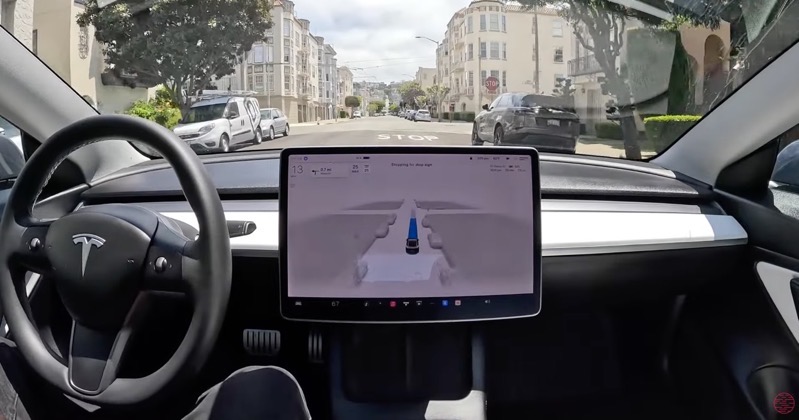
Samsung to Make Tesla’s Hardware 5 Chip, Says Report

Image: @WholeMarsBlog
In a move signaling a strengthening business alliance, Tesla is set to reportedly expand its partnership with Samsung.
The South Korean giant has been reportedly entrusted with manufacturing Tesla’s next-generation Hardware 5 (HW 5.0) chips, designed to be incorporated into the automaker’s advanced Level-5 autonomous driving vehicles.
The chips, developed on Samsung’s advanced 4-nanometer technology, are slated for Tesla’s Hardware 5 computers. Mass production is expected to commence in three to four years, according to industry insiders, reports the Korean Economic Daily.
This latest partnership follows a decision by Tesla last year to contract Taiwan Semiconductor Manufacturing Co. (TSMC) for HW 5.0 auto chip production. With the recent developments, Tesla could either work alongside both TSMC and Samsung or transition entirely to Samsung for mass production. This supply chain diversification is a strategy similarly used by Apple.
The shift in manufacturing strategy began in early May 2023 during a strategic meeting between Samsung Group leader Lee Jay-yong and Tesla’s CEO, Elon Musk. The discussions centered on strengthening the tech alliance, focusing on joint development of chips for fully autonomous vehicles.
Last year, Tesla had initially chosen TSMC over Samsung for its next-generation Full Self-Driving (FSD) chip production, primarily due to perceived higher foundry chip manufacturing yields from the Taiwanese company. However, recent industry assessments indicate Samsung has significantly improved its yield rates, aligning it closely with TSMC’s performance.
Moreover, Samsung has been doubling down on its efforts in the automotive chip sector, competing fiercely with TSMC for supply contracts from EV makers, including Tesla. Samsung’s ambitious growth plan includes a significant expansion of its foundry capacity at its main plant in Pyeongtack, Korea and the launching of operations at a new plant in Taylor, Texas by the end of 2024.
The global demand for advanced auto chips is on the rise, driven by the increasing adoption of autonomous and in-vehicle infotainment systems by automakers worldwide. The global auto chip market is projected to nearly double by 2029, reaching $143 billion from an estimated $76 billion this year, according to market researcher IHS Markit.
Currently, Tesla vehicles that have the latest Hardware 4 include the Model S, Model X and Model Y. It’s expected Tesla’s upcoming Model 3 ‘Highland’ refresh will have Hardware 4 as well.

